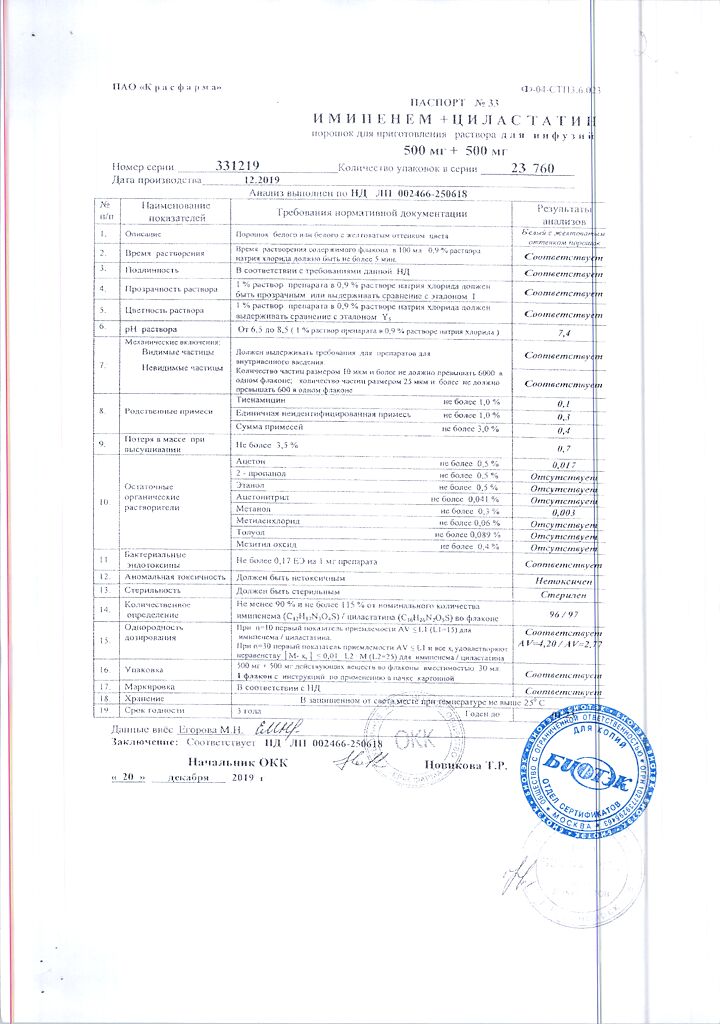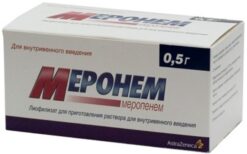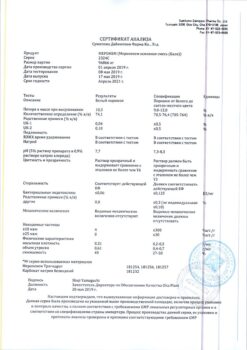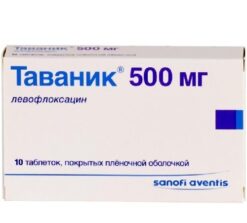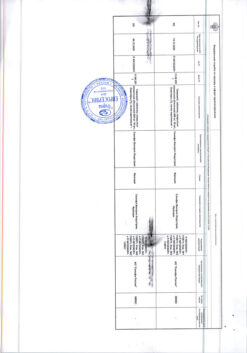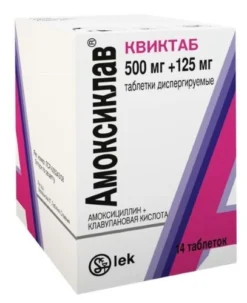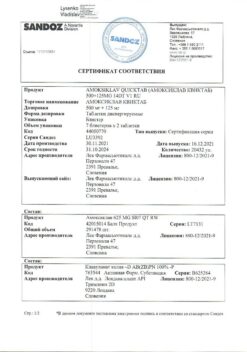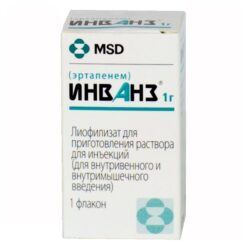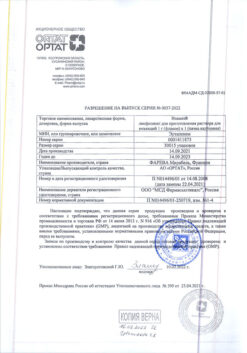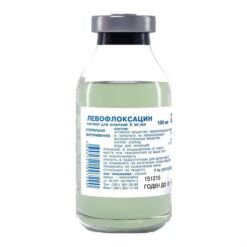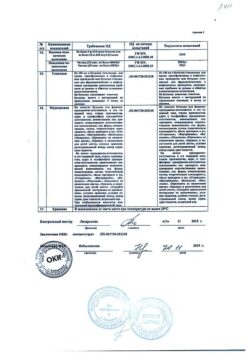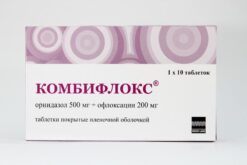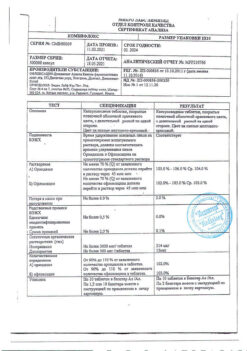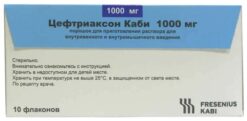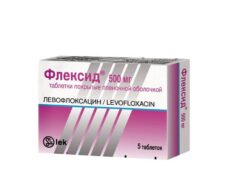No products in the cart.
Imipenem and Cilastatin Jodas, 500 mg+500 mg powder 10 ml
€13788.00 €11.49
Description
Beta-lactam antibiotic of wide spectrum of action. Inhibits bacterial cell wall synthesis and has bactericidal effect against a wide range of Gram-positive and Gram-negative microorganisms, aerobic and anaerobic.
Indications
Indications
Infectious and inflammatory diseases caused by sensitive microorganisms (polymicrobial or mixed aerobic-anaerobic infections):
– lower respiratory tract infections;
– urinary tract infections;
– intra-abdominal infections;
– infections of the skin and soft tissues;
– infections of bones and joints;
– peritonitis;
– sepsis;
– endocarditis;
– inflammatory diseases of the pelvic organs.
Prevention of postoperative complications.
Pharmacological effect
Pharmacological effect
Broad-spectrum beta-lactam antibiotic. Suppresses the synthesis of bacterial cell walls and has a bactericidal effect against a wide range of gram-positive and gram-negative microorganisms, aerobic and anaerobic.
Special instructions
Special instructions
Not recommended for the treatment of meningitis.
Strict adherence to the recommended dosage and dosage regimen is strictly required, especially in patients predisposed to seizure activity. Therapy with anticonvulsants in patients with a history of epilepsy should continue throughout the period of treatment with the drug. If local tremor, myoclonus, or seizures are observed, patients should undergo a neurological examination and be prescribed anticonvulsant therapy. The dosage of the drug in this case should be reviewed to determine whether it should be reduced or the drug should be discontinued.
The dosage form contains 37.56 mg (1.63 mEq) sodium.
Before initiating therapy, a thorough medical history should be obtained regarding previous allergic reactions to beta-lactam antibiotics. If an allergic reaction develops, the drug should be discontinued immediately.
Individuals with a history of gastrointestinal diseases (especially colitis) have an increased risk of developing pseudomembranous colitis.
When using the drug, both during administration and after 2-3 weeks. after stopping treatment, diarrhea caused by Clostridium difficile (pseudomembranous colitis) may develop. In mild cases, it is sufficient to discontinue treatment and use ion exchange resins (colestyramine, colestipol); in severe cases, replacement of loss of fluid, electrolytes and protein, and the appointment of vancomycin and metronidazole are indicated. You should not use medications that inhibit intestinal motility.
As with other beta-lactam antibiotics, Pseudomonas aeruginosa can quickly develop resistance to the drug during treatment. Therefore, during the treatment of infections caused by Pseudomonas aeruginosa, it is recommended to conduct periodic antibiotic sensitivity tests according to the clinical situation.
Elderly patients are likely to have age-related renal impairment, which may require dose reduction.
Colors urine reddish.
Impact on the ability to drive vehicles and operate machinery
Caution should be exercised when driving a car and engaging in other potentially hazardous activities that require increased attention and speed of psychomotor reactions.
Active ingredient
Active ingredient
Imipenem, [Cilastatin]
Composition
Composition
Active substances:
Contraindications
Contraindications
– hypersensitivity to one of the components of the drug, as well as to other carbapenems, beta-lactam antibiotics, penicillins and cephalosporins;
— chronic renal failure with CC less than 5 ml/min/1.73 m2 without hemodialysis;
— early childhood (up to 3 months);
– in children – severe renal failure (serum creatinine concentration more than 2 mg/dl).
With caution
Diseases of the central nervous system (CNS), pseudomembranous colitis, patients with a history of gastrointestinal diseases, with creatinine clearance less than 70 ml/min/1.73 m2, patients on hemodialysis, anticonvulsant therapy with valproic acid (reduced effectiveness of therapy), elderly age.
Side Effects
Side Effects
From the nervous system: myoclonus, mental disorders, hallucinations, confusion, epileptic seizures, paresthesia.
From the urinary system: oliguria, anuria, polyuria, acute renal failure (rare).
From the digestive system: nausea, vomiting, diarrhea, pseudomembranous enterocolitis, hepatitis (rare).
From the hematopoietic organs and hemostasis system: eosinophilia, leukopenia, neutropenia, agranulocytosis, thrombocytopenia, thrombocytosis, monocytosis, lymphocytosis, basophilia, decreased Hb, prolonged prothrombin time, positive Coombs test.
Laboratory indicators: increased activity of “liver” transaminases and alkaline phosphatase, hyperbilirubinemia, hypercreatininemia, increased concentration of urea nitrogen; direct positive Coombs test.
Allergic reactions: skin rash, itching, urticaria, exudative erythema multiforme (including Stevens-Johnson syndrome), angioedema, toxic epidermal necrolysis (rare), exfoliative dermatitis (rare), fever, anaphylactic reactions.
Local reactions: skin hyperemia, painful infiltration at the injection site, thrombophlebitis.
Other: candidiasis, taste disturbance.
Interaction
Interaction
Pharmaceutically incompatible with lactic acid salts and solutions of other antibiotics.
When used simultaneously with penicillins and cephalosporins, cross-allergy is possible; exhibits antagonism to other beta-lactam antibiotics (penicillins, cephalosporins and monobactams).
When used simultaneously with ganciclovir, the risk of developing generalized seizures increases. These drugs should not be used together unless the potential benefits outweigh the potential risks.
Drugs that block tubular secretion slightly increase the plasma concentration and T1/2 of imipenem (if high concentrations of imipenem are required, the use of these drugs at the same time is not recommended).
When using the drug, the serum concentration of valproic acid decreases, which leads to a decrease in the effectiveness of anticonvulsant therapy, therefore, during the treatment period it is recommended to monitor the serum concentration of valproic acid.
Overdose
Overdose
Symptoms: possible increased side effects.
Treatment is symptomatic. Imipenem and cilastatin undergo hemodialysis. However, the effectiveness of this procedure in case of drug overdose is unknown.
Storage conditions
Storage conditions
In a place protected from light at a temperature not exceeding 25°C. Keep out of the reach of children.
Shelf life
Shelf life
2 years.
Manufacturer
Manufacturer
Jodas Expoim Pvt.Ltd, India
Additional information
| Shelf life | 2 years. |
|---|---|
| Conditions of storage | Store in a place protected from light at a temperature not exceeding 25°C. Keep out of reach of children. |
| Manufacturer | Jodas Expoim Pvt. Ltd, India |
| Medication form | Powder for preparation of solution for infusion |
| Brand | Jodas Expoim Pvt. Ltd |
Related products
Buy Imipenem and Cilastatin Jodas, 500 mg+500 mg powder 10 ml with delivery to USA, UK, Europe and over 120 other countries.


